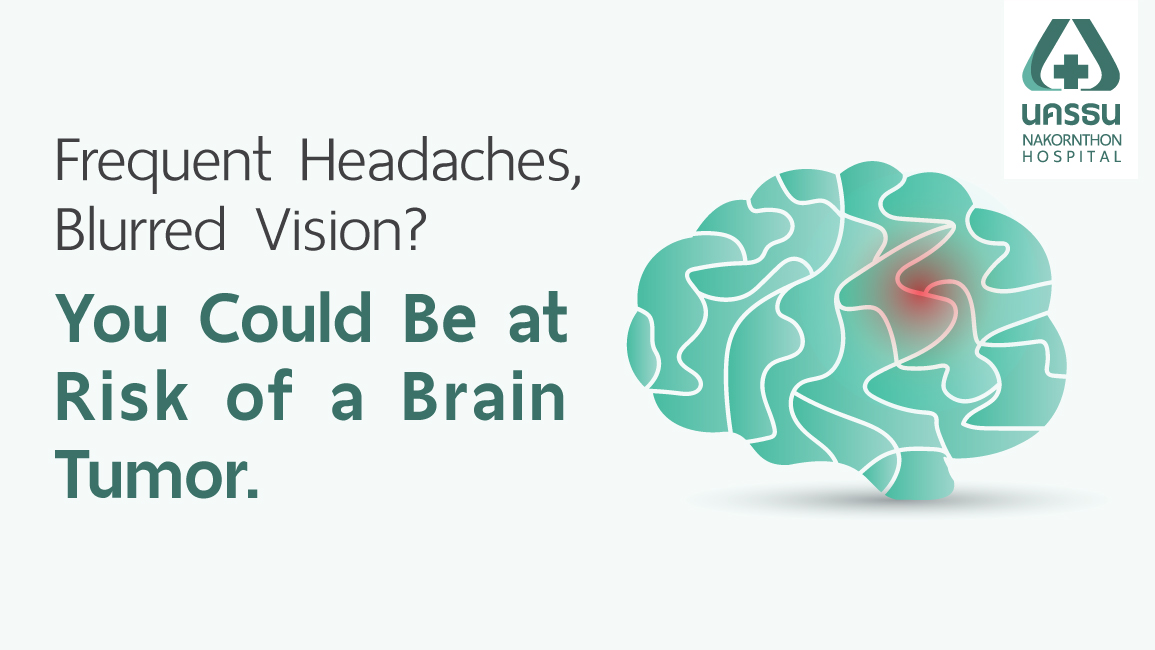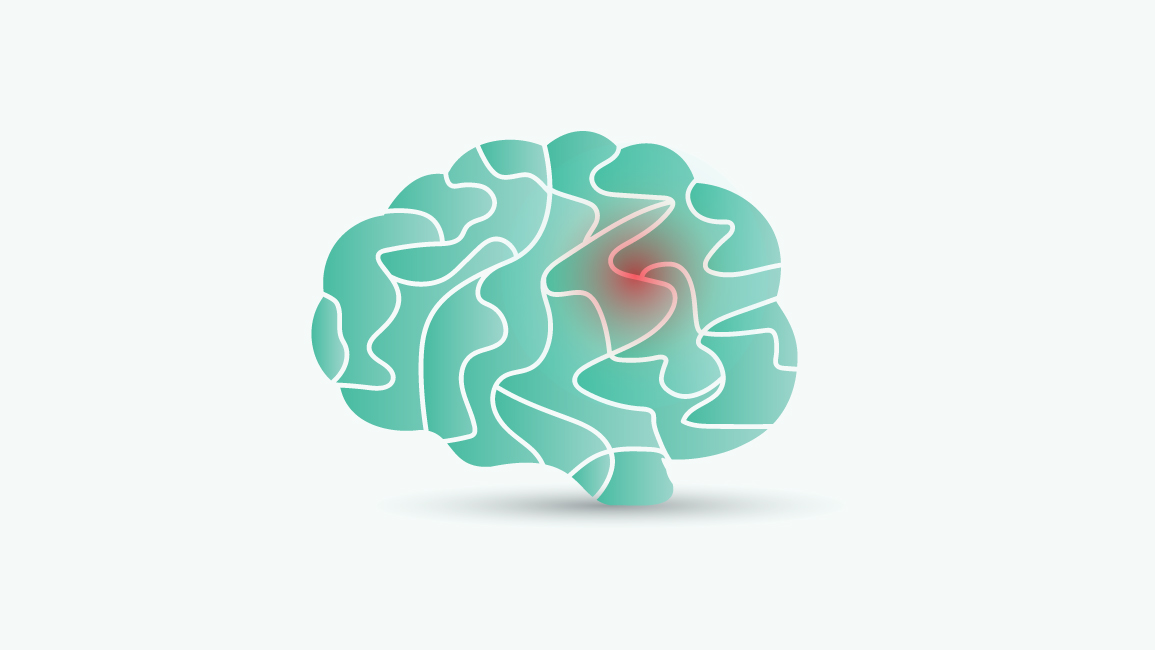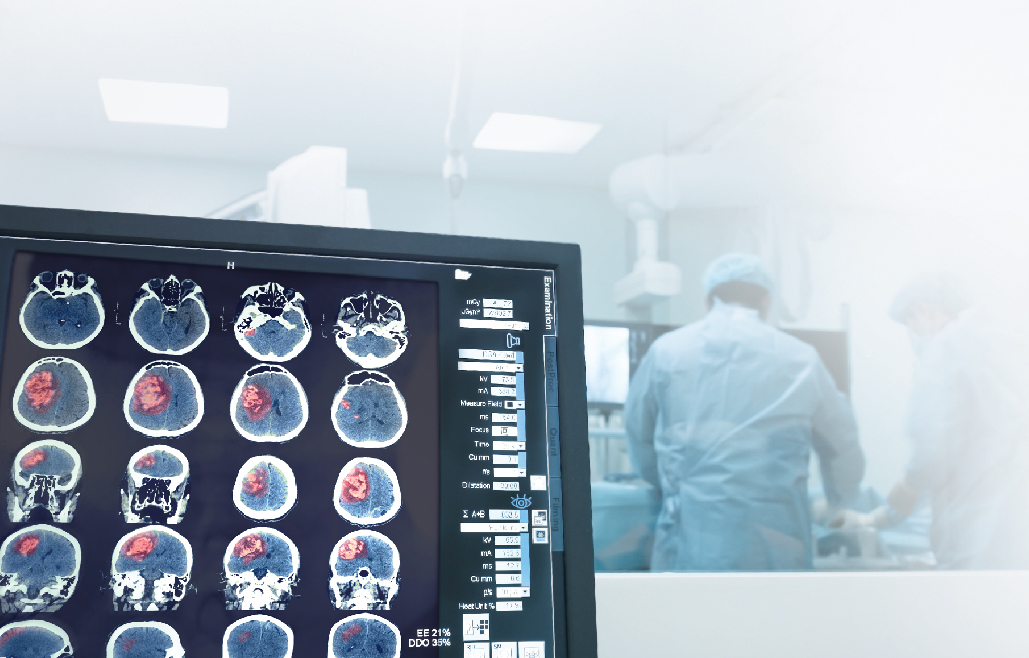Signs of Brain Tumor : Causes, Symptoms & Treatments
Center : Neurology Center
Article by : Dr. Chanwit Ankrohwittaya

A brain tumor is a silent danger often hidden behind chronic headaches, even when the body is well-rested and free from stress or anxiety. Despite feeling physically fine, persistent headaches may still occur. Many people mistake these symptoms for migraines, but they can be signs of something more serious.
Other brain tumor symptoms may appear alongside headaches, such as difficulty speaking, hearing problems, vision issues, and memory disturbances. These symptoms of brain tumor often resemble those of a stroke, arteriovenous malformations (AVMs), or cerebral ischemia, making early detection even more critical.
If you experience any signs of brain tumor, it’s important to seek medical attention promptly. Delayed diagnosis and treatment can lead to severe complications like paralysis or the progression into brain cancer. Recognizing brain tumor warning signs early may save your life.
Don't ignore unusual symptoms—whether it's a subtle sign of brain tumor or sudden neurological changes. If you're concerned, consult with a specialist. Online health consultations are also available below for added convenience.
Table of Contents
What Is a Brain Tumor?


A brain tumor is a condition caused by abnormal growth of tissue within the brain or nearby areas, which can affect brain function and the nervous system. This abnormal tissue growth can press against the brain and interfere with essential bodily functions controlled by the brain. It's important to note that not all brain tumors are cancerous. In fact, tumors found in the brain are categorized into two main types:
- Non-cancerous brain tumors (benign tumors): These occur due to genetic abnormalities or mutations in brain cells that cause the cells to grow and divide at an abnormal rate. These tumours grow slowly, do not contain cancer cells, and can often be completely treated or removed.
- Cancerous brain tumors (malignant tumors): These consist of cancer cells that grow rapidly and can spread or press on surrounding brain tissue. They may originate in the brain or spread from other parts of the body. These brain cancer symptoms can progress quickly and significantly impair brain function, posing serious risks to life.
What Causes a Brain Tumor?
Brain tumors can be caused by a variety of factors, and in some cases, the exact cause remains unknown. One common cause is genetic abnormality—mutations in certain genes may lead to abnormal cell growth, eventually forming a tumor. A family history of brain tumors can also increase the risk.
Brain tumor symptoms can occur at any age. However, some types of brain tumors are more common in children, while others appear more frequently in adults and the elderly.
If you experience persistent headaches, unexplained seizures, frequent vomiting, or problems with vision or speech, these could be signs of a brain tumor. It's important to see a doctor for a thorough examination, as these could be early brain tumor warning signs. Identifying symptoms of brain tumor early can lead to more effective treatment and better outcomes.
Risk factors for a Brain Tumor
While the exact cause of a brain tumor is still not fully understood, several factors may increase the risk of developing one. These include:
- Age: A brain tumor can occur at any age, but it is most commonly found in individuals over the age of 40.
- Gender: Statistically, brain tumors occur more frequently in men than in women.
- Exposure to radiation or chemicals: Long-term exposure to ionizing radiation or certain workplace chemicals may raise the risk of developing a tumor, including those that affect the brain.
What Are the Symptoms of a Brain Tumor?


The symptoms of brain tumors vary depending on the tumor’s location, type, and size. Some individuals may not experience any symptoms at all and only discover a tumor incidentally during a health check-up. However, if you experience any of the following brain tumor symptoms, it is important to seek medical attention immediately:
- Persistent headaches—a common early sign. Typically, the headaches occur more than 15 days a month for at least 3 consecutive months.
- Nausea or vomiting, especially vomiting that occurs in the morning without any apparent cause.
- Gradual numbness or loss of movement in the arms or legs, sometimes leading to partial paralysis.
- Difficulty with balance or walking.
- Confusion, memory loss, personality changes, or Alzheimer-like behavior.
- Ringing in the ears (tinnitus) or dizziness.
- Facial muscle numbness or tingling.
- Difficulty swallowing.
- Blurred or double vision.
- Speech difficulties, such as trouble understanding language or expressing thoughts.
- Loss of bladder or bowel control.

How is Brain tumor diagnosed?
When a patient experiences symptoms that cannot be explained by other conditions or known causes, a doctor may investigate the possibility of a brain tumor by performing brain scans. These imaging techniques provide a detailed view of the brain and surrounding areas. Common methods include CT scan (Computed Tomography), MRI (Magnetic Resonance Imaging), and PET scan (Positron Emission Tomography). These scans help detect the presence of a tumor, identify its size and location, and assess how it may be affecting nearby brain structures.
If a brain tumor is found, further imaging of other organs may be required to determine whether cancer cells have spread from or to other parts of the body.
In addition, a biopsy may be performed to examine a sample of the abnormal tissue. This test helps determine whether the tumor is benign or malignant, as well as its stage and severity. Knowing whether the growth is a non-cancerous tumor or a cancerous mass is essential for creating an accurate and effective treatment plan.
Treatment for Brain tumor
Treatment for a brain tumor is personalized based on each patient’s condition. Can a brain tumor be cured? If the tumor is not aggressive and the patient’s condition is stable, the chance of recovery is high, and the need for surgery may be minimal. The main treatment methods for brain tumors include the following:
Brain surgery
If the tumor is located in a surgically accessible area of the brain that does not endanger surrounding tissues or nerves, doctors may perform surgery to remove as much of the abnormal tissue as possible. Modern brain surgery techniques include:
- Microscopic surgery involves using a high-powered surgical microscope with precision lighting to reach deep brain areas. This allows surgeons to clearly see and navigate delicate brain structures and nerves, increasing surgical accuracy and reducing injury to nearby vital tissues.
- Endoscopic surgery uses a slender, high-definition camera inserted into the brain through a small incision. This method is particularly suitable for procedures such as relieving brain fluid buildup or removing tumors near the pituitary gland. It offers excellent visibility in deep regions and minimizes trauma to surrounding tissues.
Radiation therapy
This treatment uses high-energy radiation to destroy cancerous cells in the brain tumor while sparing healthy brain tissue. Techniques such as Intensity-Modulated Radiation Therapy (IMRT), Image-Guided Radiation Therapy (IGRT), and Volumetric Modulated Arc Therapy (VMAT) allow for more precise targeting of tumour cells, increasing effectiveness and reducing side effects.
Chemotherapy
Chemotherapy for brain tumors involves using medications to kill or slow the growth of tumor cells. These drugs may be administered orally or through intravenous injection. Depending on the type and severity of the tumor, a combination of drugs may be prescribed. In cases where the brain tumor results from cancer that originated in another organ, treatment will be tailored based on the specific type of cancer involved.
Advanced Brain Tumor Treatment at Nakornthon Hospital
The brain is one of the most vital organs in the human body. Complications from a brain tumor can lead to severe or even permanent damage, including physical disability, coma, or death. If you experience any symptoms suggestive of a brain tumor—whether it’s just one symptom or a combination—consult a neurologist or brain specialist immediately.
At the Brain and Neurology Center, Nakornthon Hospital, we specialize in diagnosing and treating brain and nervous system disorders using advanced medical innovations and technologies. From early detection of brain tumor symptoms to tailored treatment plans, our multidisciplinary team is equipped to deliver comprehensive neurological care.
Delaying treatment or ignoring brain tumor warning signs can allow the condition to progress, making it more difficult to manage. Early, accurate diagnosis and expert care can significantly improve outcomes and reduce the risk of long-term complications.
For more information, please contact:
- - Website : https://en.nakornthon.com
- - Facebook : Nakornthon Hospital - International Patient
- - Line : @nakornthoninter
- - Tel: 02-450-9999 (Available 24 hours)
Free Online Consultation
Article of Neurology Center






